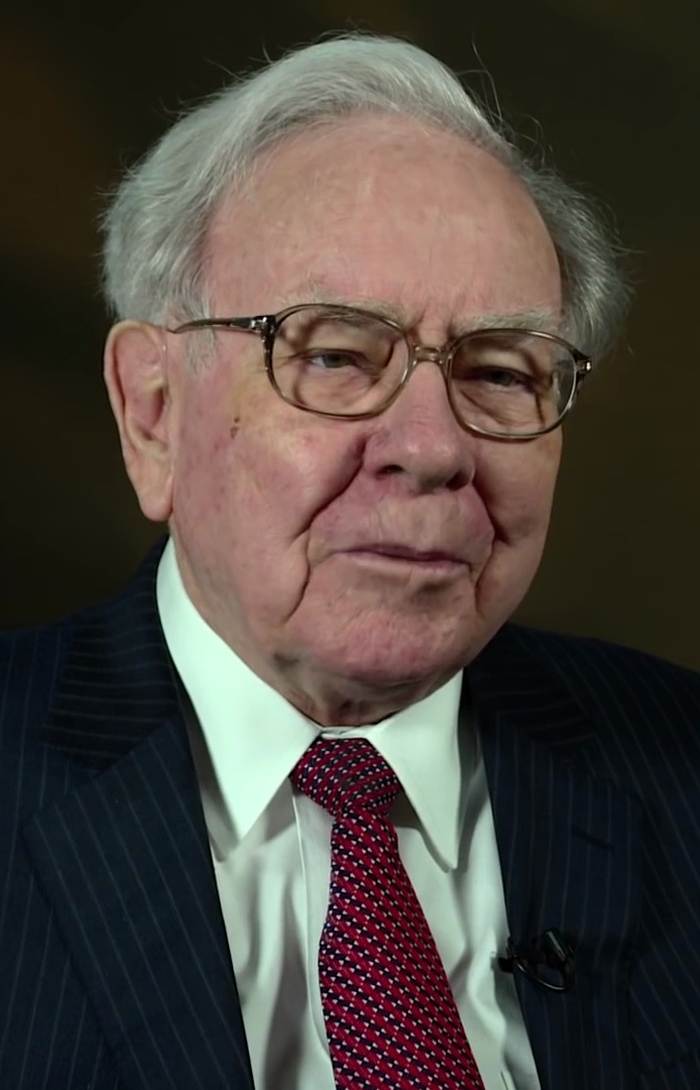Warren Buffett is one of the most successful investors in the world and is known as the “Wise Man of Omaha.” His investment philosophy emphasizes long-term value and investing in companies you understand. As a corporate manager, he also grew Berkshire Hathaway into a massive conglomerate. This article provides a detailed explanation of Buffett’s investment philosophy and corporate management.
- 1 Warren Buffett: The Real Face of the Oracle of Omaha
- 2 Buffett’s Investment Philosophy: Emphasizing Long‑Term Value
- 3 Buffett as a Corporate Executive: Turning Berkshire into a Giant Conglomerate
- 4 Recent Buffett and Berkshire: New Challenges and Changes
- 5 Summary: Buffett’s Teachings for the Future
- 6 Reference Links
Warren Buffett: The Real Face of the Oracle of Omaha
Early Life and Initial Career
Warren Buffett was born on August 30, 1930, in Omaha, Nebraska. From a young age, he had a strong interest in business and tried his hand at various ventures, such as delivering newspapers and selling golf balls. At the age of eleven, he made his first stock investment, purchasing a share of Cities Service Preferred. This experience taught him the fundamentals of investing.
He initially wanted to attend business school in college, but after being rejected by Harvard University, he enrolled at Columbia University. At Columbia, he studied under legendary investors Benjamin Graham and David Dodd, deeply learning the principles of value investing. Graham’s teachings formed the foundation of Buffett’s investment philosophy and greatly influenced his subsequent investment decisions.
After graduation, he worked at Graham-Newman Corp., gaining experience as an investor. He then returned to his hometown of Omaha, founded his own investment firm, and launched his career as an independent investor. Throughout his early career, Buffett established his own investment style and steadily grew his wealth.
Meeting Berkshire Hathaway
In the 1960s, Buffett began buying shares of Berkshire Hathaway, a textile company. At the time, Berkshire Hathaway was in financial distress, and its stock price was languishing. Buffett focused on the company’s future potential and steadily accumulated shares at undervalued prices.
After a series of conflicts with management, Buffett ultimately took control of the company. Once in charge, he decided to exit the textile business and transform Berkshire Hathaway into an investment company. By acquiring the insurance firm National Indemnity and securing ample cash flow, he accelerated further investments.
Subsequently, he acquired companies across various industries, growing Berkshire Hathaway into a massive conglomerate. Acquisitions included GEICO (auto insurance), BNSF (railroads), and Dairy Queen (ice cream), among others. Thanks to Buffett’s exceptional investment acumen, Berkshire Hathaway became one of the world’s most valuable companies.
Why He Is Called the “Oracle of Omaha”
Buffett earned the nickname ‘Oracle of Omaha’ because of his outstanding investment skill, long‑term perspective, and integrity. His investment philosophy is simple yet highly effective, influencing many investors.
Buffett focuses on long‑term value and invests only in companies with business models he understands. He also trusts management teams and grants them significant discretion. Through letters to shareholders, he shares his investment philosophy and economic views, drawing attention from investors worldwide.
He is also known for living a modest life and shunning luxury. For years, he has lived in the same house and prefers simple meals, a lifestyle that has impressed many. Buffett’s success is not only financial but also rooted in his honesty, humility, and commitment to philanthropy. He has pledged to donate the majority of his wealth to charitable causes, a stance that continues to inspire many.
Buffett’s Investment Philosophy: Emphasizing Long‑Term Value
Concentrated Investing and Long‑Term Holding
The core of Buffett’s investment philosophy is to concentrate investments in a few promising companies and hold them long‑term. He prefers concentrated investing over diversification, concentrating capital on companies he has thoroughly analyzed. Buffett cites the proverb “Put all your eggs in one basket and watch that basket carefully” to emphasize the importance of concentrated investing.
Regarding long‑term holding, he says, “Once you find a few favorite companies, hold them forever.” He believes that as companies grow, their stock prices rise, and he invests from a long‑term perspective without being swayed by short‑term market fluctuations. Buffett believes timing the market is impossible, and that buying good companies at a discount and holding them long‑term is the most reliable investment strategy.
Typical examples of his long‑term holdings include Coca‑Cola and American Express. These companies have been core to Berkshire Hathaway’s portfolio for years, providing stable earnings. Buffett’s strategy of concentrated investing and long‑term holding has greatly improved his investment performance.
Investing in Companies You Understand
Buffett has a clear criterion of investing only in companies whose business models he understands. He strictly follows the principle of “do not invest in businesses you don’t understand,” tending to avoid complex financial products and technology companies.
The companies Buffett targets have simple business models and long‑term competitive advantages. For example, Coca‑Cola has global brand power and a strong distribution network, generating stable earnings for years. Buffett describes such companies as having a “moat,” evaluating their robust business models that competitors cannot easily enter.
He thoroughly analyzes financial statements, evaluating profitability, growth, and management quality. Buffett forecasts future cash flows and determines whether the current stock price is undervalued. By investing in companies he understands, he aims to reduce risk and maximize long‑term investment returns. Buffett’s investment philosophy is easy for beginners to grasp and practice, earning support from many investors.
Purchasing at a Discounted Price
Buffett emphasizes buying stocks at a price lower than a company’s intrinsic value. He says, “The price is what you pay, and the value is what you receive,” stressing the importance of accurately assessing a company’s value and purchasing at a discount.
Buffett evaluates a company’s intrinsic value through financial statements and industry analysis. He forecasts future cash flows and uses discounted cash‑flow analysis to calculate the company’s value. When the market temporarily falls, he actively purchases shares of quality companies that have become undervalued.
He quotes, “When others are greedy, be cautious; when others are cautious, be greedy,” and practices a contrarian investment strategy. Buffett holds stocks purchased at a discount for the long term, waiting for their prices to rise with company growth. He invests from a long‑term perspective without being swayed by short‑term market fluctuations. Buffett’s strategy of buying at a discount has greatly improved his investment performance. His philosophy is based on value investing principles and has influenced many investors.
Buffett as a Corporate Executive: Turning Berkshire into a Giant Conglomerate
Management that Respects Independence
Buffett gives significant discretion to the managers of companies under Berkshire Hathaway and maintains a management style that respects independence. He believes that the best approach is to leave it to capable managers, and he does not issue detailed instructions himself.
Buffett trusts the management teams of acquired companies, believing they best understand their respective businesses. He encourages them to focus on improving corporate value from a long‑term perspective. While he sets the overall strategic direction for Berkshire Hathaway, he is minimally involved in the day‑to‑day operations of individual companies.
He provides the necessary resources and supports their success. Buffett’s independence‑respecting management style drives growth among Berkshire Hathaway’s subsidiaries. Skilled managers expand their businesses with creative ideas, producing innovative products and services. Berkshire Hathaway, while a conglomerate with diverse businesses, has built a unique corporate culture that allows each company to maintain independence while continuing to grow.

Management with a Long‑Term Perspective
Buffett does not get caught up in short‑term profits; he prioritizes management from a long‑term perspective. He believes that to achieve long‑term success, one must be willing to make short‑term sacrifices, and he prioritizes improving long‑term corporate value over immediate gains.
Buffett also emphasizes a long‑term view in corporate investment decisions. He actively invests in businesses with expected future growth, pursuing long‑term returns without being swayed by short‑term market fluctuations. He encourages corporate managers to set long‑term goals and devise strategies to achieve them, advising them not to succumb to short‑term pressure but to make decisions from a long‑term perspective.
Buffett’s long‑term perspective drives the stable growth of Berkshire Hathaway. He focuses on enhancing corporate value from a long‑term view, delivering sustainable returns to shareholders. Berkshire Hathaway has built a corporate culture that prioritizes long‑term management, earning support from many investors.
Integrity Toward Shareholders
Buffett places the highest importance on integrity toward shareholders. He believes that shareholders are partners and should always be treated honestly, providing them with transparent and truthful information.
Through letters to shareholders, Buffett explains in detail Berkshire Hathaway’s management status and investment strategy. He shares both good and bad news without concealment. Buffett prioritizes shareholders’ interests and never takes actions that would damage long‑term corporate value for short‑term gains.
He encourages shareholders to invest with a long‑term perspective, advising them not to be swayed by short‑term market fluctuations but to trust in the company’s growth. Buffett’s integrity toward shareholders earns the trust of Berkshire Hathaway’s investors. Shareholders trust Buffett’s management skills and integrity, holding Berkshire Hathaway shares long term. Berkshire Hathaway builds strong relationships with shareholders, realizing long‑term corporate value growth.
Recent Buffett and Berkshire: New Challenges and Changes
Investment in Apple Shares
In recent years, Buffett purchased a large amount of Apple stock, a high‑tech company he had not previously considered an investment target, and it became a major talking point. This has drawn attention as an indication of a shift in his investment philosophy. Buffett had once avoided investing in technology companies because he could not understand them. However, he focused on Apple’s brand power, customer loyalty, and the stability of its cash flow, and decided to invest.
Apple has become one of Berkshire Hathaway’s largest investments within its portfolio, generating significant returns. Buffett’s investment in Apple suggests that his investment philosophy is evolving with the times. Rather than ignoring technological progress, he identifies companies with long‑term competitive advantages, thereby creating new investment opportunities.
Buffett’s investment in Apple has influenced other investors and prompted a reassessment of investing in technology companies. He demonstrates a willingness to embrace change, acquire new knowledge, and update his investment decisions. Buffett’s flexible investment stance is one of the factors that underpin his long‑term success.
Succession Issue
Considering Buffett’s age, the succession issue is a critical challenge for Berkshire Hathaway. Currently, several succession candidates have emerged, and future developments are closely watched. Buffett has not made a clear designation of his successor. However, Greg Abel and Ajit Jain are cited as strong candidates.
Greg Abel is the CEO of Berkshire Hathaway Energy and leads the energy business. Ajit Jain heads Berkshire Hathaway’s insurance operations and has delivered stable earnings for many years. Buffett seeks a successor with strong ethics, excellent managerial ability, and an understanding of Berkshire Hathaway’s corporate culture. He expects the successor to focus on enhancing corporate value from a long‑term perspective and to continue upholding integrity toward shareholders.
Buffett’s succession issue remains a key concern for Berkshire Hathaway’s future, and future developments are closely watched. Whether his successor can inherit Berkshire Hathaway’s success and lead further growth will be the focus going forward.
Impact on Vietnam
Vietnamese companies and investors are also trying to learn from Buffett’s investment philosophy, and his words are widely known in Vietnam. Vietnamese firms are adopting a long‑term management perspective, a focus on value, and a commitment to shareholders, aiming for sustainable growth. Financial institutions such as Agribank also use Buffett’s philosophy as a reference, striving for long‑term management.
Vietnamese investors are learning Buffett’s value‑investment principles and aim to buy shares of quality companies at attractive prices. They analyze financial statements in detail to assess future growth potential. Buffett’s investment philosophy is expected to contribute to Vietnam’s economic development. Long‑term investing promotes sustainable corporate growth, creates jobs, and a commitment to shareholders enhances corporate credibility and attracts investment.
Vietnam is looking to its investment philosophy to achieve sustainable economic growth. His teachings will serve as a guide for Vietnamese companies and investors toward the future.
Summary: Buffett’s Teachings for the Future
Warren Buffett’s investment philosophy and corporate management are rooted in a long‑term perspective, a focus on value, and integrity. His teachings will serve as a guide to the future not only for investors but also for business leaders and ordinary people.
Buffett’s investment philosophy is simple yet highly effective, influencing many investors. Improving corporate value from a long‑term perspective, investing in companies with business models you understand, and buying shares at a discount are the principles that form the foundation for long‑term success.
Buffett’s corporate management is characterized by respecting independence, managing with a long‑term perspective, and being honest to shareholders. These principles provide the foundation for sustainable growth.
Buffett’s teachings will be passed on into the future and continue to influence many people. His investment philosophy and corporate management will contribute to a sustainable society and serve as a roadmap for building a better future. Warren Buffett’s legacy will not be limited to financial success alone; it will be forever remembered for his integrity, humility, and commitment to social contribution.
Reference Links
本質を見抜く」「原則がぶれない」―。世界一の投資家ウォーレン・バフェットへの評価は、半世紀にわたる年平均リタ…













